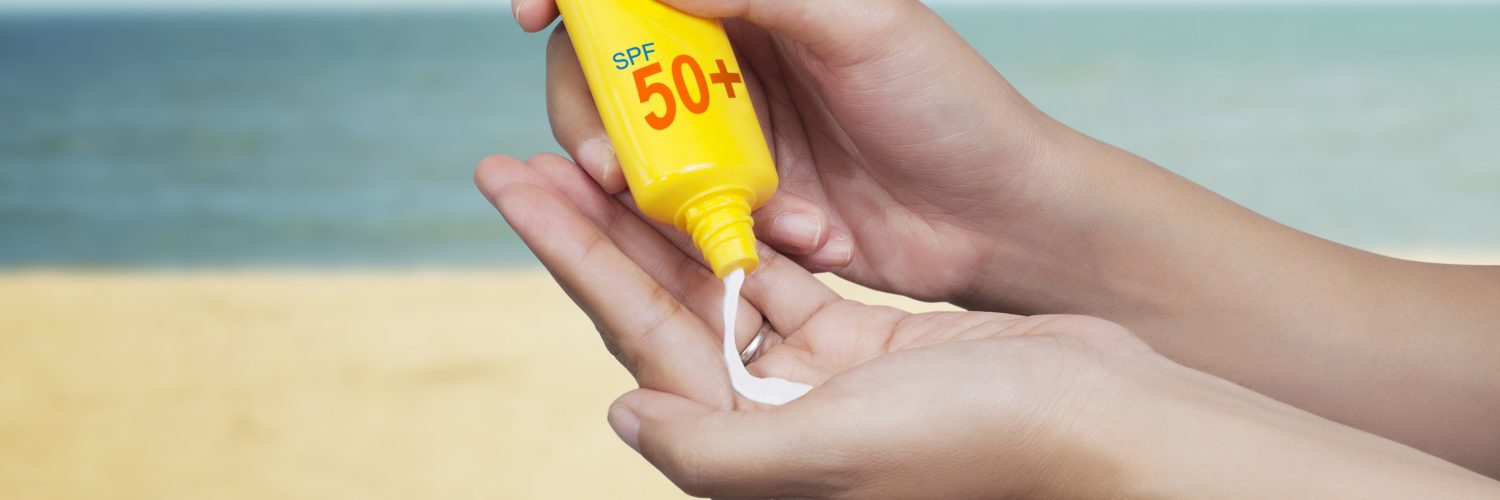As most of the world – including both the United States and Israel – is currently experiencing a summer heat wave, this topic is practically relevant and timely. In recent years, there has been increasing awareness of the danger of extended exposure to the sun’s rays and the importance of applying sunscreen or sunblock, particularly by those of fair complexion. Is it permissible to apply these on Shabbos?
We must first examine whether applying these substances is considered Refua, which is forbidden on Shabbos. The products contain various chemicals that either absorb the sun’s ultraviolet rays and prevent them from affecting the skin or act as a barrier against the harmful rays reaching the skin. Some also contain vitamins that are good for the skin. As we will see, these objectives are not classed as Refua, but merely serve to prevent the skin from harm[1].
Refua is forbidden on Shabbos due to the concern of “Shechikas Samemanim” – the possibility that a person may violate the Issur d’Oraisa to grind herbs and the like to produce medications (see the Shulchan Aruch O.C. 328). One may only make use of a product that is generally used by healthy people and isn’t made for the purposes of Refua.
If a product is designed to prevent harm to the body, is it considered a medication? Proof for this can be adduced from the Yerushalmi’s ruling (Shabbos 6:2) that it is permissible to place a bandage on a wound on Shabbos for it only serves to protect [it]. However, vine leaves may not be applied to the wound, as that would be considered an act of Refua.
The purpose of covering a wound with a bandage is to prevent it from rubbing against clothing and reopening (see Aruch haShulchan 328:33). Since the bandage does not actively promote wound healing, its application is not considered an act of Refua. However, if the bandage contains a material that promotes the healing process (such as vine leaves which prevent scarring – Pnei Moshe ibid.), its application does constitute an act of Refua. These Halachos are codified by both the Smag (Lavin 65) and Shulchan Aruch (328:24).
The Shulchan Aruch (ibid. 29) also rules that it is permissible to rub wine on a wound in order to stem bleeding, because it is similarly not an act of cure. It follows that if a substance does not actively cure an ailment, but only prevents one from developing or the exacerbation of an existing injury or illness, its application is not considered an act of Refua.
The same should be true of sunscreen and sunblock – since they only prevent skin damage and do not cure skin disease, its application is not an act of Refua. (Particularly as the disease in question is not a certainty by any means, just a remote concern).
We have ascertained that the use of sun protection creams does not violate the Issur of Refua on Shabbos. However, there may be an additional Issur of Meleches Memachek. Memachek is the act of smoothing out materials or substances (see Shabbos 75b). For example, the Gemara rules that it is forbidden to spread a cream over a bandage on Shabbos in order to place on a wound (see Rashi ibid. and the Rambam’s Pirush haMishnayos to Eruvin 10:13) or to spread wax over a barrel in order to seal it.
The Gemara (ibid. 146b) cites a dispute between Rav and Shmuel regarding the application of “Mishcha” (thick oil – Rashi ibid) to the skin. Spreading Mishcha onto the skin is certainly not an Issur d’Oraisa as it isn’t a solid like wax and doesn’t necessitate a significant act to smooth it out. Nevertheless, Rav held that its usage is an Issur d’Rabbanan due to the concern that people would be confused and think that smoothing wax is similarly permissible. Rabbenu Chananel and the Rif (ad. loc.), as well as the Rambam, other Rishonim, the Tur and Shulchan Aruch (314:11), all hold that the Halacha follows Rav.
Presumably, this Issur does not apply to an actual liquid, such as oil of a loose consistency. This is implied by Rashi who asserts that the dispute between Rav and Shmuel is only over “Shemen Av” – thick oil, and by the Shulchan Aruch who enumerates a number of liquids with which one may seal a barrel. Therefore, one may certainly use sunscreen or sunblock that comes in the form of an oil. However, if it comes in the form of a cream, its application would appear to be an act of Memachek.
However, there may be a basis to permit the use of creams as well. The Shulchan Aruch (316:11) rules that one may not rub saliva into the ground on Shabbos because doing so smoothes over any bumps and is an act of Memare’ach (a Tolda of Memachek) to the earth.
Why does the Shulchan Aruch only consider the issue of smoothing over the earth and not smoothing out the saliva itself? The Magen Avraham (ibid. 24) answers that the Melacha of Memacheck (or Memare’ach) is only violated when a person intends to smooth one substance over another and not when he intends that one substance be absorbed by another. Therefore, the act of treading the saliva into the ground is not an act of Memachek.
It follows that according to the Magen Avraham there would appear to be no Issur involved in applying sunscreen creams to the skin since the person’s intention for it to be absorbed by the skin.
However, some contend that the Magen Avraham only permitted causing one substance to be absorbed by another when the person’s intention is to do away with the substance that is to be absorbed such as the saliva in the case of the Shulchan Aruch. But if the person intends for the substance to serve some use after it has been absorbed, it is forbidden.
The proof for this is a ruling of the Mishna Berura (327:16) who forbids applying shoe polish on Shabbos even though polish is absorbed by the shoe. This proves that when the person intends for the absorbed substance to serve a purpose, it is forbidden to apply it. However, others argue that in that case the person does not intend that the polish be completely absorbed by the shoe because he wishes to create a sheen on its surface.
The Shemiras Shabbos Kehilchasa (1, p561) discusses this question and cites “testimony” that the Chazon Ish was lenient with regard to the application of creams to the body on Shabbos. He also cites Rav Shlomo Zalman Auerbach zt”l who ruled that one may only be lenient if the cream will be entirely absorbed by the skin.
It follows that according to Rav Shlomo Zalman the use of sun protection creams would be forbidden as some of it is certain not to be absorbed. However, Rav Ovadia Yosef zt”l (4, O.C. 28:13) permitted its use even if some of the cream will not be absorbed, as the person intends for it all to be absorbed.
In conclusion, it is
certainly preferable to procure sunscreen that comes in an oil form. If only
cream is available, one should apply a thin layer so that it will be entirely
absorbed by the skin.
[1] There are other types of sunscreen that are specifically designed for those with various skin diseases or who are undergoing treatment of skin diseases and are particularly sensitive to sun exposure. These products may not be used on Shabbos because their application is considered an act of Refua, even if the person only means to use them like regular sunscreen.














